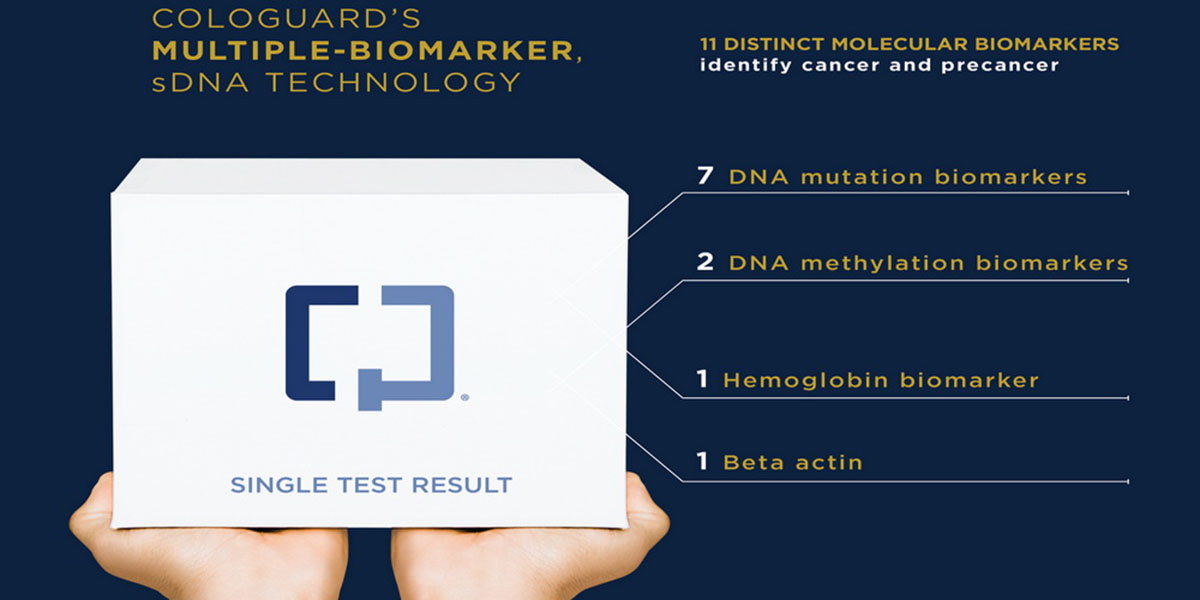Table of Contents
The FDA-approved test is called Cologuard (manufactured by Exact Sciences Corporation), and it is used to examine the stool for hemoglobin (a component of blood) and DNA mutations associated with colorectal cancer. Although it is not meant to replace colonoscopy as the gold standard for detecting for colorectal cancer, it is by far the most sensitive noninvasive screening test, which may be more acceptable to most people.

Who Needs to Get Tested for Colon Cancer?
Colon cancer affects men and women alike, especially those who are over 50 years old. Although it is often diagnosed in older adults, changes involved in the process of developing the disease may begin earlier. Factors that increase your risk of developing the disease include:
-
Racial and ethnicity factors. Studies show that African Americans have a greater risk of developing the disease compared to non-Hispanic whites. However, non-Hispanic white individuals have a greater risk than those who are of Hispanic, Asian, and Pacific Island descent.
-
Family history. People who have a strong family history of colorectal cancer and other related cancers are more likely to develop the disease.
-
Medical history. Individuals who have a history of colorectal cancer, other types of cancer, ulcerative colitis, Crohn's disease, intestinal polyps and radiation therapy in the abdomen are more likely to develop colorectal cancer.
-
Dietary factors. People who consume a high fat diet that is low in fiber have a higher likelihood of developing the disease.
However, if you are over 40 years old, doctors recommend getting a screening test such as a stool exam for occult blood. A person who tests positive for occult blood has a 30 to 45 percent chance of having a colon polyp, and up to a five percent chance of having colon cancer. However, up to 20% of colon cancers may test negative in this test.
People who are older than 50 years old are advised to undergo a screening colonoscopy, which is a highly sensitive test that allows direct visualization, removal of polyps and biopsy of tissues. Depending on the individual's risk factors and results of his examinations, repeat tests may be regularly done to check for changes in the colon.
See Also: Who should have colonoscopy exam?
When to Call a Doctor
Call a doctor when you experience the following signs and symptoms of colorectal cancer:
-
Change in your bowel habits.
-
Blood in your stools, which may appear bright red or black in color.
-
Chronic/frequent diarrhea or constipation
-
A constant feeling that you are not able to empty your bowel completely.
-
Stools that appear thin or narrow.
-
Abdominal pain, bloating or gas.
-
Unexplained weight loss.
-
Constant fatigue/tiredness.
- CNN. New at-home test may detect colon cancer. http://thechart.blogs.cnn.com/2014/08/14/new-at-home-test-may-detect-colon-cancer/
- WebMD. FDA Panel Recommends At-Home Colon Cancer Test. http://www.webmd.com/colorectal-cancer/news/20140328/fda-advisory-panel-recommends-approval-of-at-home-colon-cancer-test
- Medscape. FDA Approves Cologuard for Colorectal Cancer Screening. http://www.medscape.com/viewarticle/829757
- Medscape. Novel Stool DNA Test May Enhance Colon Cancer Screening http://www.medscape.com/viewarticle/822198
- Medscape. Can Cologuard Improve Colon Cancer Screening Rates? http://www.medscape.com/viewarticle/830596
- MedicineNet. Colon Cancer. http://www.medicinenet.com/colon_cancer/article.htm
- MedicineNet. Colon Cancer Screening. http://www.medicinenet.com/colon_cancer_screening/article.htm
- Photo courtesy of A Healthier Michigan by Flickr : www.flickr.com/photos/healthiermi/13266671775
- Photo courtesy of Exact Sciences Corporation by : cdn2.hubspot.net/hub/377740/file-1218604503-png/exs-er-Cologuard-MultipleMarkerGraphic-01.png?t=1412178646426
- cnn.com
- www.webmd.com
- www.medscape.com
- www.medicinenet.com

